This article was co-authored by Trudi Griffin, LPC, MS. Trudi Griffin is a Licensed Professional Counselor in Wisconsin specializing in Addictions and Mental Health. She provides therapy to people who struggle with addictions, mental health, and trauma in community health settings and private practice. She received her MS in Clinical Mental Health Counseling from Marquette University in 2011.
There are 11 references cited in this article, which can be found at the bottom of the page.
This article has been viewed 17,223 times.
Eating as entertainment is often referred to as emotional eating, which means using food to fulfill some other emotional need like loneliness, boredom, or sadness. You might sit in front of the TV and eat a whole pack of cookies. Or, you might find yourself eating a gallon of ice cream that one weekend when all of your friends are too busy to hang out. Emotional eating can lead to problems losing weight or result in you gaining unwanted pounds. if you are having problems with eating to entertain yourself, you need to learn how to develop a healthier approach to eating.[1]
Steps
Coping with Emotional Eating
-
1Don't beat yourself up about emotional eating. At some point another, all people eat for comfort, and that's why some foods are labeled as comfort foods. Still, you don't ever want to find yourself constantly seeking out food to fill an emotional void. When you notice that you have been eating for entertainment a lot, simply stop the behavior as soon as you can.[2]
- If you elect to punish yourself with criticisms or guilt after emotional eating, it may result in more emotional eating leading to a vicious cycle of unhealthy behaviors.
- Rather than criticizing your mistakes, show yourself compassion. Remind yourself that you are only human and we all make mistakes. Acknowledge that you engaged in emotional eating and, after that, let it go. Don't hold on to the mistake. Make a plan to do better starting now.[3]
-
2Try to identify the underlying need. If you are eating emotionally, there is some need being left unfulfilled. Take a moment to assess your current feelings. Are you lonely or missing someone? Did you have a hard day or receive some bad news? Maybe you have an impending deadline that is freaking you out and you turn to food to cope with the stress. Whatever the emotional cause is for your eating, you must acknowledge it in order to change the behavior.[4]
- Using a journal can be helpful in figuring out the underlying need of emotional eating. See Part 2 for more details.
Advertisement -
3Learn how to stop feeling lonely. If you determine that your emotional eating is rooted in loneliness, find ways to overcome this feeling will help you stop emotional eating in its tracks. Find a healthier behavior to fulfill the need rather than reaching for food.
- If you are emotional eating out of loneliness, you can connect with others who have similar interests as you, get involved in activities you enjoy, or adopt a pet to have as a companion.
-
4Find ways to deal with stress or anxiety. If you view eating as entertainment only when you are incredibly stressed, combating stressful situations is your best option to stop these unhealthy eating habits. You may be worried or upset about a health problem, financial difficulties, or strain in a relationship. Any of these stressors can cause you to eat emotionally.[5]
- If eating for entertainment is linked to your stress levels, you may need to find ways to relax. Some ideas may include getting regular physical activity, adequate sleep, and engaging in regular self-care activities like drinking a cup of hot tea or soaking in a long, hot bath. Other suggestions for stress-relief may include practicing meditation or yoga.
-
5Recognize when you're bored. You may be viewing food as a source of entertainment because you are not stimulated by other things. Mix up your everyday routine and do something out of the norm to prevent boredom. Research shows that people often feel bored and think food will offer them a pick-me-up.[6]
- If your eating is based on boredom, think of fun and interesting things you can do to overcome boredom that don't involve eating. Create a list of fun activities to do and tick them off one by one to ward off getting bored with your daily routine. Get out of your house and explore your city. Read a book. Do something that you love.
-
6Ask a family member or friend to hold you accountable. If you live with someone, you may be able to reach out to them for help in coping with emotional eating. For one, this person may offer their listening ear for you to vent frustration or simply talk to and combat loneliness. On the other hand, this person can also help you to monitor your eating behaviors.[7]
- Even if you live alone, a friend or relative may allow you to call them or come over when you have the urge to eat for entertainment. This person might keep your thoughts occupied in other ways by talking, playing a game, or listening to music.
-
7Seek out other forms of social support. You can also join a support group like the 12-step self-help program Overeaters Anonymous.[8] In such groups you can hear the personal stories of others who often use food for entertainment. Their testimonials and encouragement can help you to learn how to overcome your emotional eating issue.[9]
Adopting Mindful Eating Habits
-
1Remove the foods you turn to for comfort from your home. Go through your refrigerator and pantry and take out all the snacks or comfort foods you have been using to soothe your emotions. Throw these foods away or give them to friends or family. The next time you are in the market, avoid purchasing these foods again.
- If you have easy access to unhealthy foods, it will be difficult to overcome the temptation to eat mindlessly when you are not feeling so great. Getting rid of these foods makes the process easier to not eat for entertainment.
-
2Fill your kitchen with healthy, nutritious snacks. Keep healthy foods at reach that offer your body beneficial vitamins and nutrients like fruits and vegetables, lean sources of protein, low-fat dairy, and whole grains.[10] Eating a well-balanced diet of healthy foods will also minimize cravings for unhealthy foods filled with sugar, salt, or fat.
- While any form of emotional eating is unhealthy, you are less likely to beat yourself up if you overeat on grapes as opposed to a bag of cookies.
-
3Track what you eat. Use a mobile app or an online web tool that allows you to track what you eat. Awareness is the first step in changing unhealthy eating behaviors. Therefore, if you get an idea of what foods you are eating and when, you can come up with a strategy to prevent emotional eating before it happens.[11]
- Jot down the foods you are eating and the times you eat them in a health and fitness tracker. You might notice a trend of late-night eating when you are lonely or that you tend to eat emotionally on days when you have several deadlines.
-
4Keep a journal.[12] Writing down your thoughts and feelings each day can also help you to recognize triggers or signs of eating for entertainment. Tracking your food helps you to know what you were eating, but journalling gives you insight into what you were feeling and sometimes why you were feelings this way. After you recognize situations in which you are vulnerable to emotional eating, you can apply the coping strategies outlined above.
-
5Eat only when you're hungry. Oftentimes, people eat on a timetable or by a schedule without paying attention to if they are actually hungry. To prevent eating for entertainment only, eat food when you notice the signs of hunger in your body.[13]
- Physical hunger arrives gradually and can be put off by drinking water or having a light, healthy snack. When you eat something to satiate true hunger, it can be any food and once you have eaten enough, your body feels full.
- Emotional hunger, on the other hand, arrives suddenly and feels urgent. Usually, these "hunger pangs" are for specific foods like ice cream or pizza. Plus, even after you have had your share, you might continue to eat.
-
6Eat mindfully. Practice mindfulness when you are eating by avoiding multitasking during meals. Eat your food without watching TV or using any other distraction. With each bite, notice the texture, taste, smell, and colors of the food. Chew slowly - about 20 chews per bite - and put your fork down after each bite. Once, you've had your fill, stop eating, even if there is still food on your plate.[14]
-
7Delay meals or snacks by 10 minutes. If you think you are hungry, drink a glass of water first. Sometimes, hunger is mistaken for thirst. If, after 10 minutes, you still have the urge to eat, choose a healthy, balanced snack such as nuts or fresh fruit and veggies. Or, a meal with lean protein, produce, and whole grains.[15]
References
- ↑ https://health.clevelandclinic.org/5-strategies-to-help-you-stop-emotional-eating/
- ↑ https://www.helpguide.org/articles/diets/emotional-eating.htm
- ↑ https://psychcentral.com/blog/a-surprising-way-to-quiet-your-inner-critic#5
- ↑ https://medlineplus.gov/ency/patientinstructions/000808.htm
- ↑ https://www.cdc.gov/violenceprevention/about/copingwith-stresstips.html
- ↑ http://www.cdc.gov/healthyweight/losing_weight/eating_habits.html
- ↑ https://familydoctor.org/emotional-eating-in-children-and-teens/
- ↑ http://www.oa.org/
- ↑ http://www.health.harvard.edu/newsletter_article/why-stress-causes-people-to-overeat
- ↑ https://health.clevelandclinic.org/5-strategies-to-help-you-stop-emotional-eating/
- ↑ https://www.myplate.gov/resources/tools
- ↑ https://www.urmc.rochester.edu/encyclopedia/content.aspx?ContentTypeID=1&ContentID=4517
- ↑ https://familydoctor.org/emotional-eating-in-children-and-teens/
- ↑ https://medlineplus.gov/ency/patientinstructions/000808.htm
- ↑ https://www.helpguide.org/articles/diets/emotional-eating.htm
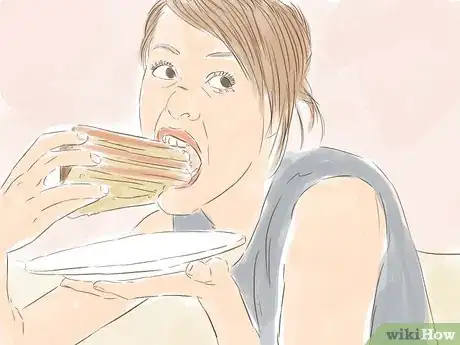
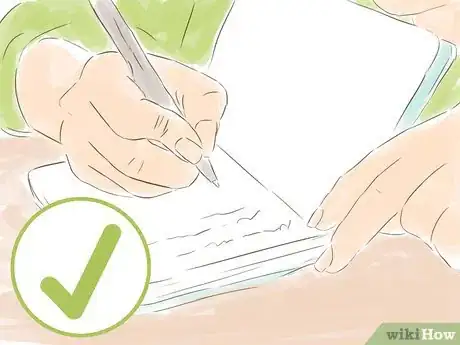
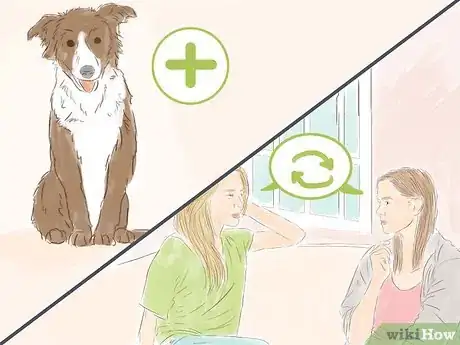



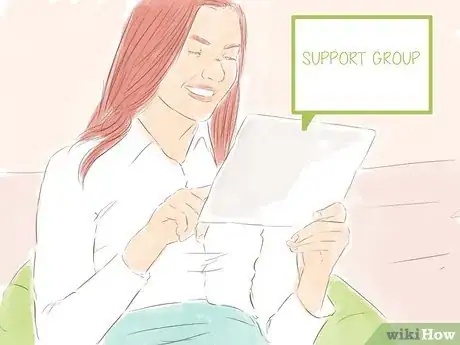
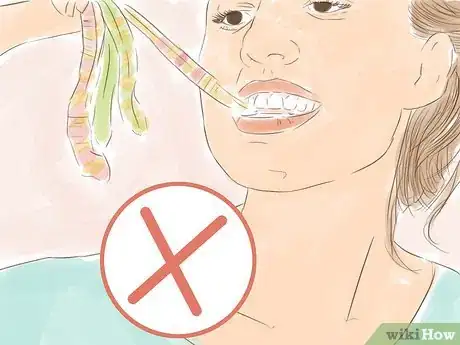
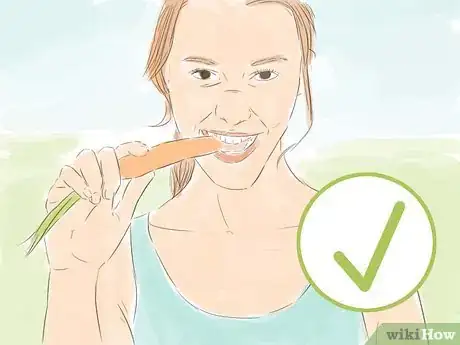
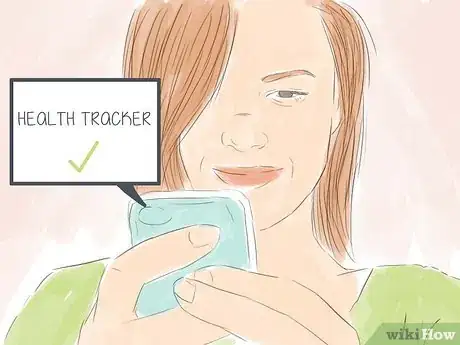
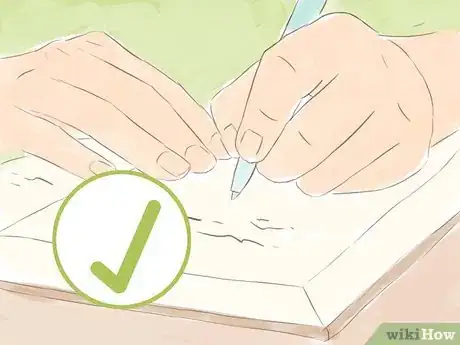
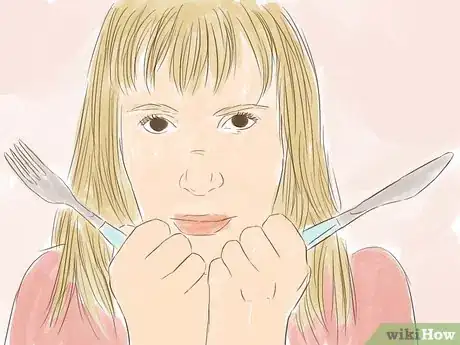
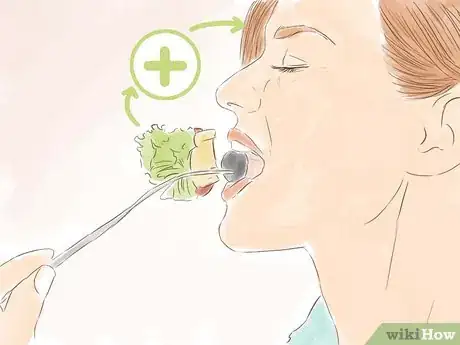
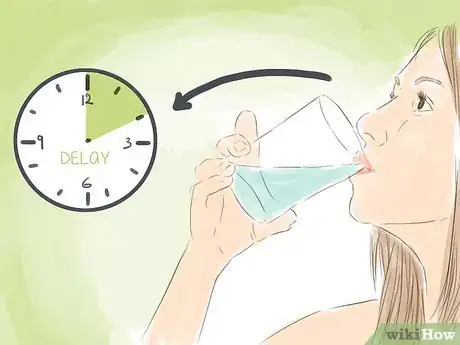

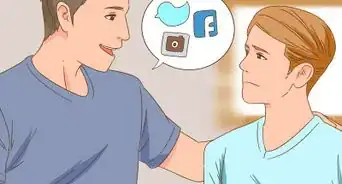
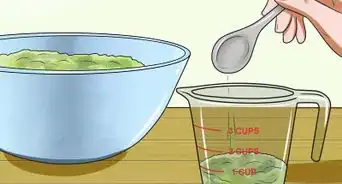
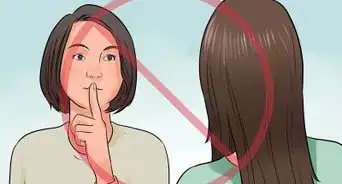

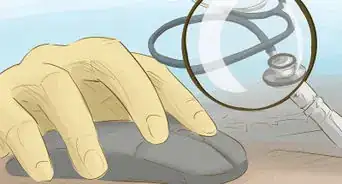

















































Medical Disclaimer
The content of this article is not intended to be a substitute for professional medical advice, examination, diagnosis, or treatment. You should always contact your doctor or other qualified healthcare professional before starting, changing, or stopping any kind of health treatment.
Read More...